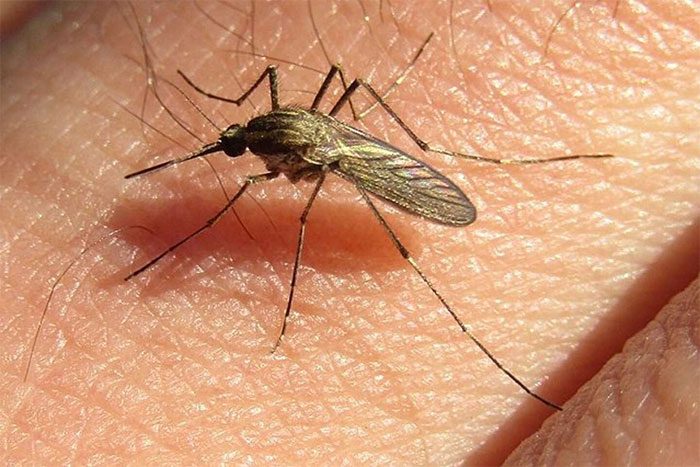The emergence of the Aedes albifasciatus mosquito, commonly known as the flood mosquito, has prompted health officials in Argentina to issue a health warning after the country reported cases of a deadly neurological disease caused by this mosquito species.
According to an article in Le Monde, since late December 2023, this invasive mosquito has spread across Argentina, with sightings in the capital Buenos Aires, major urban areas, and the central regions of the country.

This mosquito is wreaking havoc across Argentina.
Biologist Sylvia Fischer explains that the alarming appearance of the Aedes albifasciatus mosquito is due to its larvae’s ability to survive in ponds or stagnant water caused by heavy rainfall, which often occurs after periods of drought.
Argentina is currently experiencing the effects of the El Niño weather system, leading to heavy rains after several years of drought. This phenomenon has created favorable conditions for mosquito proliferation.
“All eggs hatch simultaneously, larvae develop concurrently, and a large number of adult mosquitoes emerge. This is the reason for the sudden increase in mosquito populations,” biologist Fischer explains.
Controlling mosquito larvae is quite complex due to their ability to adapt to different temperatures and seasons. This species can travel long distances, from the remote areas of Tierra del Fuego in southern Argentina to the northernmost parts of the country. This mosquito is active both day and night, as long as it rains.
Florencia Gimenez, a 50-year-old woman living in Buenos Aires, reported being covered in mosquito bites, with five bites just on her left leg. The insects can even bite through clothing.
In a report from the National Scientific and Technical Research Council of Argentina (CONICET), scientist Victoria Micieli warns that the ability to bite through the thick skin of pets or human clothing has contributed to the spread of disease by this mosquito. Their behavior is invasive and aggressive.
The bites of the Aedes albifasciatus mosquito are dangerous for both animals and humans because they carry the Western Equine Encephalitis virus—a deadly neurological disease commonly seen in horses. On November 28, 2023, the Argentine Ministry of Health issued a warning after a rise in cases.
According to the Ministry’s data, as of January 5, approximately 1,250 cases have been reported. Additionally, there are reports of the disease spreading among horses in nearly all 24 provinces of the country. On January 7, a 66-year-old man died after contracting the illness. According to the Ministry of Health’s epidemiological report, the man lived in rural Santa Fe and had diabetes. He began showing symptoms in late November 2023.
Western Equine Encephalitis (WEE) is a rare disease caused by a virus transmitted by mosquitoes. Through the mosquito vector, the virus can infect both horses and humans. However, this disease is not transmissible from person to person. Symptoms of the illness include fever, sudden headaches, fatigue, and tremors, which usually resolve after 7 to 10 days. The incubation period in humans ranges from 2 to 10 days.


















































